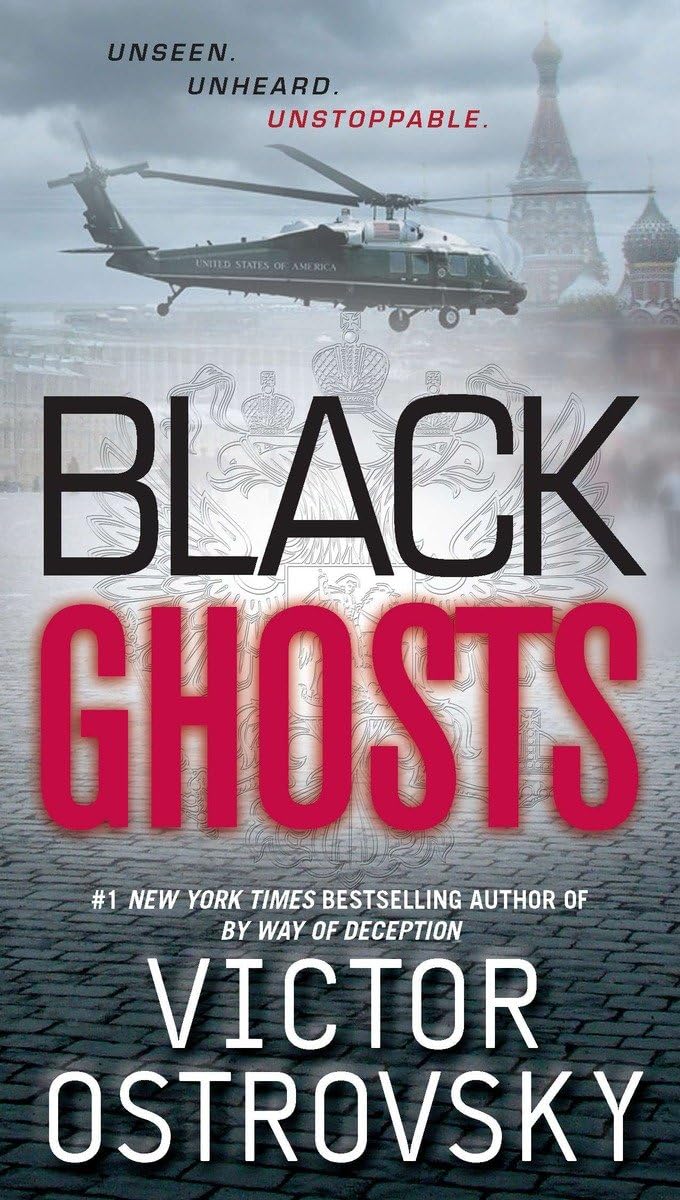Black Ghosts

ISBN: 978-0425241462
Victor Ostrovsky’s other book review, By Way of Deception, can be read here. This, might be a necessary step to understand this work, Black Ghosts, as it is a “fictional work” although given Ostrovsky’s background, it might not be all that fictional after all.
The premise of the book is that on the eve of a nuclear arms treaty between Russia and the United States there is unrest in a former KGB intelligence unit that has the designation of the Black Ghosts. It turns out that a former leader of the group is staging a prison break, and is not happy with what has happened to Russia politically as a result of his imprisonment and so intends on re-taking the unit and then utilizing it to reboot Tzarist Russia via a plan to kidnap the US president and to kill the Russian president and replace him in a coup.
Of course, there are those who are opposing this plan who are a ragtag bunch of former soldiers and intelligence operators. Edward is one of them and though he has been out of the game for some time, his friend Larry has been very much in it. When Larry shows up badly wounded on his doorstep with a mysterious woman, Edward finds himself unwillingly dragged back into the world of intelligence he has tried to leave. Before he knows it, he is off to Russia to try to stop Peter Rogov, the former head of the Black Ghosts, from carrying out his plans to disrupt both countries and to return the world back to the threat of the Cold War standoff which it is on the verge of overcoming.
The technological backstory in this book has some surprises in how the media will be used once Rogov is in place. Keeping in mind this was written before the modern era of de-platforming and its ilk, in many ways it displays a kind of prescience.
If one is looking for a stellar spy story to rival Ian Fleming in this book, one is going to be disappointed. It is more in league with a Tom Clancy read. If one has seen any movie from the 90’s one has the basic story plot. Russia bad. United States, good. New World Order, bad. Nukes, bad. Guy willing to use them to bring back terrible times, check. No, there is nothing especially new about any of this, but putting Russia at the head of the New World Order is somewhat different. The idea of sleeper cells of former KGB agents is also not different, but has a distinct “Black Water” signature as a unit which makes that part of the story also interesting.
Another piece present here concerns the actual industrial military complex that are referred to as “metal eaters”. They are a force that causes the plot to move and by the end of the book we are left with unanswered questions as to their involvement. This is likely meant to create the structure for a sequel, but to date, no sequel appears to have been written.
As previously mentioned, what makes the book more interesting is not the plot or the characters but the fact that Ostrovsky may well be here writing something that is more like a confessional than fiction. One should read it with a discerning eye, and not merely for the sake of entertainment alone.
